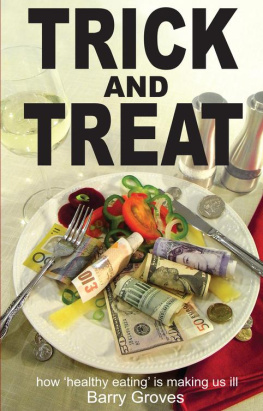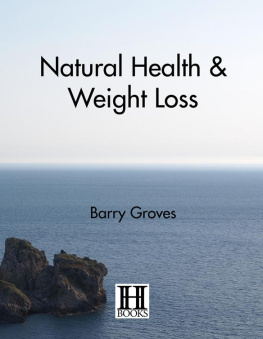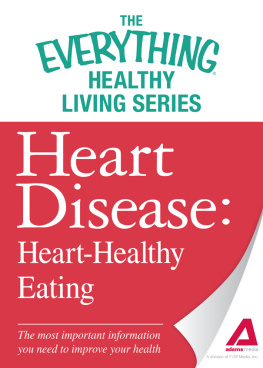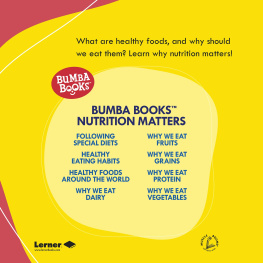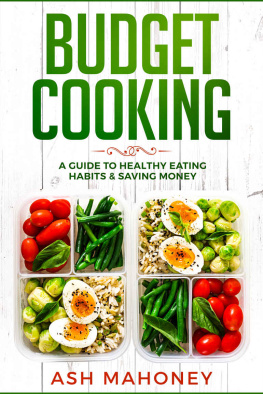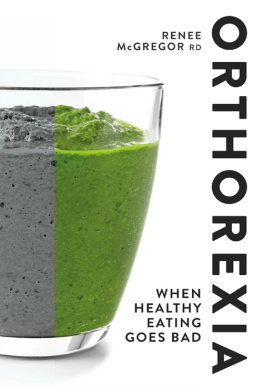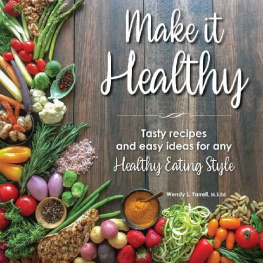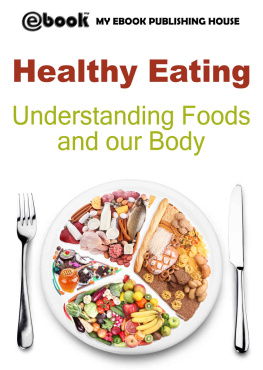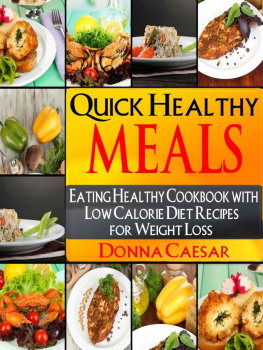Many people over the years have helped to make this book possible. To name them all would make this already large tome, impractical. But I hereby thank them all.
Three, I think, merit a special mention. They are Dr Joel M. Kauffman, Emeritus Professor of Chemistry and Biochemistry at the University of the Sciences, Philadelphia, PA, who helped enormously by correcting my biochemical mistakes in this book. My thanks, too, to Dr Ignatius F. (Knobbie) Clarke, Emeritus Professor of English at Strathclyde University, and Margaret Clarke for reading it all through to make sure that it was intelligible to a lay readership.
My wife, Monica, also deserves special thanks. She has read the whole manuscript several times; she also looked after my part of the gardening , while I was slaving over a hot computer.
D on Quixote valiantly and hopelessly charged against imaginary opponents, windmills seen as giants. Barry Grovess text vigorously challenges real powers, entrenched industries, with little prospect of direct success but with every hope that we individuals reading his presentation may reject their intrusion into our lives. His weapons are facts and experience employed with enthusiasm, tackling problems with detail and conviction. His targets are the processed food industry, the pharmaceutical and health industries, and, for good measure, the distortion of medical services and the uncritical acceptance of scientific research.
Wealthy western society has seen two opposing developments: enhanced health and longevity for some, with others precipitated into induced and medicated ill health, many victims of aggressive commerce. Sixty years ago the family shopping basket contained basic commodities and little else; today processed foods and little else. Thousands of items are temptingly on offer displacing traditional diets. Many contain processed cereals and artificial fats; and many list a dozen or more chemical and other artificial ingredients. In consequence thousands of chemicals have been newly added to the nations diet with incalculable effects.
The official promotion and dominance of refined carbohydrates as principal components in diet have provoked the obesity epidemic, an involuntary physiological compulsion to add excess to excess; and the direct consequences of exposing individuals to thousands of new chemicals involved in processing, previously unknown toxicities, allergies and anaphylactic reactions.
One wonders why many trends in modern society are contrary to good sense and reason: attitudes to medication for example. The pharmaceutical industry has achieved near miraculous success in giving effective treatment for formerly intractable disorders. Not content with this practical benefit, vast quantities of medication are taken for every real and supposed complaint, a commercial bonanza the industry is more than willing to embrace. But good health requires no medication, and ill health the necessary minimum.
Together with the food and pharmaceutical industries, the health industry has grown exponentially, proffering therapies and dietary advice fuelled by fashion and suggestibility, genuine and real benefits becoming diluted by unrealistic expectations.
These three industries which impact strongly on our health are influenced by governmental policy and pressure. It has become the norm for our professional politicians and intrusive government to pronounce and legislate on any and every aspect of our lives far beyond the natural remit of governance. Autocratic government is wilful beyond experience in misuse of power in areas beyond their competence. Transient directives and secondary targets obscure primary objectives. And prescriptions for mass benefit, e.g. statins for males over 50, attempt the impossible.
Research also has a disproportionate influence on policy and attitudes. The blind prestige given to notions of science is in denial of its need for reality and objectivity. Single research studies of complex problems without proper accreditation have minimal significance. Studies require verification, comparison and coordination with related evidence, and in changing circumstances review of their continuing validity. A single study is a piece of a jigsaw puzzle, with others contributing to a fuller picture. Misuse and misinterpretation of science are socially irresponsible .
Part One of this book examines the repercussions of particular developments on community health and welfare. Part Two considers how specific medical disorders may be affected by these changes, not to rewrite medical textbooks but with the prospect that an independent viewpoint may give new insights, most significant perhaps in diabetes, and least in multiple sclerosis. Debate is stimulated disturbing the conventional. Established practices, customs and opinions tend to constancy whereas in changing times resilience is required.
This most detailed text is a valuable contribution to our regaining personal choice and responsibility.
Dr Howel Buckland Jones, MB BS (London), 2008
E arly in 2005 a front-page article in The Daily Telegraph, headlined Vital The figures were staggering and I wondered: why were we spending so much and apparently getting such a poor service? And where was all the money going?
It wasnt long before two other facts became abundantly clear. Firstly, it came as a surprise to me that there are very few healthy people in our society today; most of us have some minor illness which may or may not eventually lead to serious problems. And secondly, we are being exploited by the biggest and fastest growing industry in the history of mankind.
Compare todays enormous cost with the experience of dentist and explorer , Dr Weston A. Price. He spent 10 years travelling the world in the 1920s and 30s, looking at the diet, and health of indigenous populations who ate their traditional foods, and comparing these with the health of those members of the same populations who had changed to eating our civilized way. When Price visited the Loetschental Valley in Switzerland in 1931, for example, he found those still eating their traditional diet had neither physician nor dentist because they have so little need for them.
The lack of illness that Dr Price found was not confined to one valley in Switzerland; it was universal. From the islands of the South Pacific, through Australia, Asia, Africa, South and North America to Europe, what he found everywhere was that those who ate their traditional diets had practically no disease at all, whereas the diseases we are prone to were rife among people of the same cultures who had been influenced by missionaries and traders into adopting our dietary customs. These findings have been confirmed by many other anthropologists, explorers and doctors reporting around the globe from icy waste to tropical jungle.
The same is true of animals in the wild: they are almost never sick unless they injure themselves or eat contaminated food. The only chronically sick animals are our civilized pets and food animals: those that have their food controlled by us. That is highly significant. Have you noticed that if you see a fat dog it will invariably have a fat owner?
Set the 90.2 billion figure also against expectation when Sir William Beveridges team set up the National Health Service (NHS) in the UK in 1948. Although those visionaries realized that any form of universal welfare scheme would be prohibitively expensive initially, they believed the NHS was affordable because, they said: there exists in any population a strictly limited amount of illness which, if treated under conditions of equity, will eventually decline. It was fully expected that if everyone had unfettered access to the best available medical services, disease would be conquered, people would become healthier, and costs would fall as rates of illness declined.

